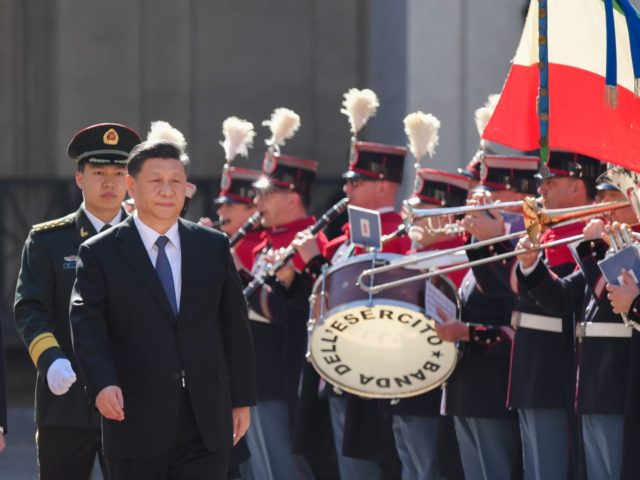Chinese President Xi Jinping ignored overtures by the Vatican, meeting with state leaders but avoiding Pope Francis during his visit to Rome this week.
Mr. Xi met with Italian President Sergio Mattarella, Prime Minister Giuseppe Conte and even made time to visit the Tomb of the Unknown Soldier but requested no meeting with the pope, despite several hints by the Vatican that the doors were open to a meeting. It is unusual for visiting heads of state not to see the pope when visiting Rome.
On Saturday, Italy signed up to China’s Belt and Road Initiative, a commercial alliance that has alarmed Italy’s neighbors and allies.
For its part, Italy has insisted that the deal is a win-win situation that will shore up infrastructure at ports such as Genoa and Trieste and inject new life into its ailing economy.
“We remain an ally of the U.S. and NATO, but when it’s a question of commercial relations, [signing accords] is what interests me,” said Luigi Di Maio, a deputy prime minister and leader of Italy’s Five Star Movement, following the signing ceremony.
A week ago Reuters reported that “senior Vatican sources” said that the pope had made known to the Chinese president his willingness to meet with him.
In a follow-up, the Vatican’s secretary of state Cardinal Pietro Parolin said China had nothing to fear from the Catholic Church.
In the preface to a new book on China published this past week, Cardinal Parolin wrote that the Vatican harbors “no distrust or hostility toward any country” and that the Church adopts “a stance of respect, esteem, and trust toward the Chinese people and their legitimate state authorities.”
In 2017, Pope Francis said he would love to visit China “as soon as they invite me,” while working to reestablish diplomatic relations that were severed in 1951.
“China always has this aura of mystery about it that is fascinating,” Francis said. “In China the churches are full. You can practice your faith in China.”
Earlier, the pope had said the West should not fear China’s growth as an emerging power on the world stage. “Fear is not a good counselor,” Francis said in 2016, while adding that China’s growth should come as no surprise to anyone.
It is obvious, he said, “that so much culture and so much wisdom, and in addition, so much technical knowledge – we have only to think of age-old medicinal techniques – cannot remain enclosed within a country; they tend to expand, to spread, to communicate.”
The Vatican signed a provisional agreement with China last September, which involved yielding an unspecified role to the Communist party in the naming of Catholic bishops in the country, a deal that some high-ranking Church officials have labeled a “betrayal” of Chinese Catholics. Ever since then, the Chinese Communist party has continued its ongoing crackdown on religious expression that does not conform to China’s socialist ideals.
The former bishop of Hong Kong, Cardinal Joseph Zen has been a vocal critic of what he sees as the Vatican’s over-eagerness to reestablish relations with China at any cost, saying that Pope Francis “is really naïve” and “doesn’t know the Chinese communists.”
At the moment, the Vatican maintains diplomatic relations with Taiwan, but would have to sever them in order to establish diplomatic relations with mainland China.
Follow Thomas D. Williams on Twitter Follow @tdwilliamsrome

COMMENTS
Please let us know if you're having issues with commenting.